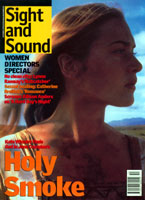Primary navigation

UK/France 1999
Reviewed by Tom Tunney
Our synopses give away the plot in full, including surprise twists.
On the Western Front, just before the build-up to the Somme offensive of 1 July 1916, a platoon of British troops hold a section of the front line. As the deadline for the dawn attack approaches, one man, Macfarlane, is wounded by an enemy sniper and evacuated. The troops' banter turns unpleasant when Dell accuses the others of stealing one of his pornographic postcards. A senior officer arrives and tells the troops the advance will be easy because the artillery will destroy the enemy's defences. The men cheer, but Daventry dissents and is later reprimanded by Sergeant Winter.
Several of the group are killed in an adjacent trench while carrying rations. Winter and Beckwith undertake a night patrol and bring back a German prisoner whom Dell insults and attacks. The German is sent back to the rear and safety. Dell is ordered to fetch the rum ration for the men, drinks much of it himself and is caught in an explosion. He comes back drunk without the rum. Winter persuades the platoon officer Harte to share his whisky with the men. As they prepare to go over the top at dawn, one man shoots himself in the leg. Macfarlane looks at the photograph in his locket: it's a face cut from Dell's missing postcard. Winter forces the drunken Dell into the attack. Winter is hit just after leaving the trench. The others advance and are cut down by enemy fire within yards of their own front line.
Author and screenwriter William Boyd's directing debut plays more like a schools-education programme than a theatrical film. The movie's low budget is particularly glaring in the final sequence where a mere handful of men (representing an army of tens of thousands) step out into an unspoilt meadow and are cut down in slow motion one by one. Compared to the manic, visceral horrors of Saving Private Ryan or the sweeping battlefield tracking shots of Paths of Glory (1957), this austere stylisation seems both clichéd and absurdly inadequate. The studio mock-up of the British trench system fails to deliver the oppressive dirt and squalor of the genuine article and the actors - despite some impressive performances, particularly from Daniel Craig as the careworn Sergeant Winter - always look like actors dressed up as soldiers rather than men who are actively subsisting in their long hole in the ground. Other low-budget war films, such as Joseph Losey's King & Country (1964), have managed to evoke the merciless, class-ridden, rituals of the British Army in World War I, but Losey felt no need to cap his film with a major battle he couldn't afford to stage.
Despite its Great War setting, Boyd's screenplay is structurally reminiscent of two British war films set in World War II: Carol Reed's The Way Ahead (1944) and Leslie Norman's The Long and the Short and the Tall (1960). The first is an optimistic platoon-focused film in which the men learn to work with each other before going into action. The second is a kind of Angry Young Man-era cynical riposte to The Way Ahead: a pessimistic platoon film in which the men constantly argue and are unprepared for the Japanese ambush which overtakes them. Boyd's film wavers indecisively between the bonding rituals of the first and the sarcasm of the second. The character of Victor Dell and his abusive treatment of the German prisoner are reminiscent of a similar scene in The Long, in which a Japanese prisoner is captured. But The Trench also emphasises the group's camaraderie, with its geographical cross-section of troops drawn from all over the British Isles. However, Boyd's script is unduly schematic. With the exception of Winter, the characters come across as writer's devices rather than real people and the funereal tones of the music score has the effect of embalming them from the start in tragic hindsight.
At least Boyd's film conveys the central failure of the generals' tactics in this war. It didn't matter whether the attacking troops were well trained or not: many would be killed before they had even fired a shot. The long dawn wait before the men finally go over the top generates a palpable tension and it is here that his direction and his cast's committed performances come into their own. That highly evocative sequence apart, the main problem with film is that it says nothing that hasn't been said more powerfully and more persuasively by other films. Although it's a useful beginner's guide to the war movie and to World War I, for real trench-level tension and terror look elsewhere.